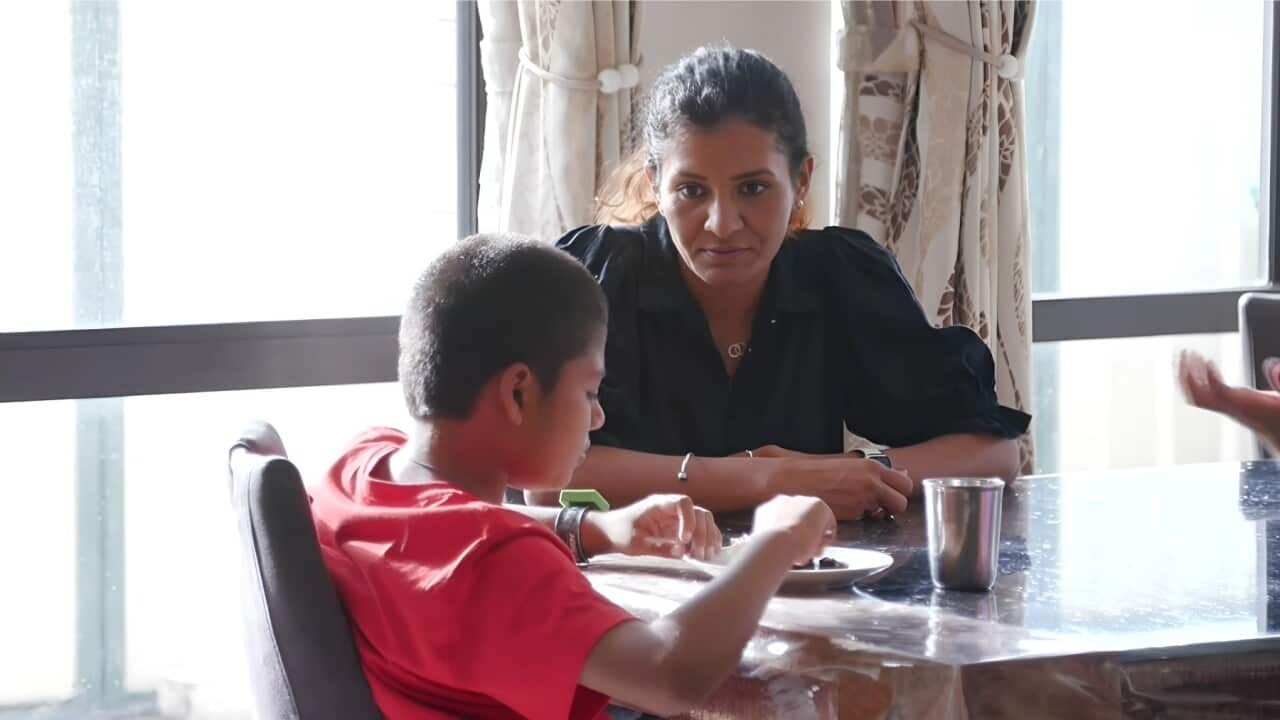TRANSCRIPT
It's Khush Patel's favourite day of the year - he's turning 12.
Khush, who has autism and ADHD, is non-verbal; it's something his parents fear could impact his safety.
His mother, Stuti, says she worries he isn't able to speak up if something bothers him.
"He's always been a happy boy. No complaints, never cries. The thing is, then we fear a lot about him is his safety. And speaking up for himself. That's, that's our biggest concern.”]
Khush was diagnosed at an early age after his parents noticed delays in his speech.
The Patels then turned to the private system for a diagnosis, hoping to avoid lengthy public system delays.
"We learned about the word autism, and then, from there the journey actually started about him getting into speech therapy, finding someone good enough, and then getting him diagnosed as soon as possible. We were lucky enough in terms of the resources and in terms of money and everything, so we just got him privately diagnosed, and it was as soon as, within couple of months. Otherwise we if we went through public system it was like two years of waiting. So I just can't imagine for the other families who've been going through that."
Khush's story highlights the challenges faced by over 290-thousand Australians diagnosed with autism.
Now, a new plan aims to bring real change.
The Federal Government has launched the National Autism Strategy, developed in consultation with the autistic community.
"This is the first Australian government strategy specifically dedicated to improving inclusion, support and life outcomes for autistic people across Australia, along with, of course, building community understanding and knowledge of the actions we all can take to ensure that our world is inclusive of the Autistic community."
Making the announcement in Western Australia, Minister for Social Services, Amanda Rishworth, says the strategy could not have been developed without the hard work of those with lived experiences with autism.
The 42-million dollar action plan includes peer support programs, autism research and awareness campaigns.
Culturally and linguistically diverse communities have been identified as a priority cohort, to address unique barriers they face.
"Whether that is through the peer support, whether it is through being very conscious of asking people how they would like to be communicated in different government systems, making sure that we have resources in language is some of the initiatives that we have committed to to make sure there is a priority for linguistically and culturally diverse people."
The seven-year strategy outlines 22 commitments, including sensory-friendly spaces, affordable diagnosis and support for employers hiring autistic workers.
Jenny Karavolos is the co-chair of the Australian Autism Alliance; she says the move brings Australia in line with countries like the U-S, Canada and the United Kingdom.
She says while the news is fantastic, there must be systems in place to ensure states and territories align their own strategies with the national plan.
"So it will be great, in order to have a completely interconnected whole of government ecosystem address we need all government levels to be actually committed to it. And the third most fundamental thing that needs to happen is that that governance framework needs to expressly identify measures that are meaningful to autistic people, and that the appropriate accountability and consequences for not implementing the strategy are put in place."
Josephine Barbaro, a member of the strategy oversight council, says when it comes to implementation, the continued inclusion of autistic people is critical.
"Everything that involves autism research, policies, services, support, anything that is involved with autistic people, must involve autistic people. The nothing about us, without us, is so critical."













